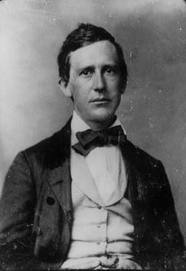Annotation:Old Folks (2)
X:1 T:Old Folks [2] T:Swanee River M:C L:1/8 R:"Sand Jig" B:Kerr - Merry Melodies vol. 2 (No. 404, p. 45) Z:AK/Fiddler's Companion K:G G4 A>GB>A|G2g2 (eg3)|d4 (B2G2)|Adfe dcBA| B2B2 A>GB>A|G>Bd>g e2g2|d2 B>G A>GB>A|G2 [B2g2][B4g4]:| |:f3g a2f2|d>cd>e d2g2|g2e2c2e2|d>fa>g (3fed (3cBA| B2B2 A>GB>A|G>Bd>g e2g2|d2 B>G A>GB>A|G2 [B2g2][B4g4]:|]
OLD FOLKS [2]. AKA - "The Old Folks at Home." AKA and see "Swannee River." American, "Sand Jig" (4/4 time). G Major (Kerr): D Major (Dixon). Standard tuning (fiddle). AABB (Kerr): AABBCCDD (Dixon). "The Old Folks at Home" was a minstrel song written in 1851 by Stephen Foster (1826-1864), here employed as an instrumental "Sand Jig", a type of schottische or clog popular in the late 19th century as a vehicle for a solo stage dance. The stage would be strewn with sand to facilitate the brushing steps. Foster famously never visited the Suwannee River, but instead cast about for a Southern river to use in his lyric. '"Suwannee' was suggested by his brother, though Foster changed the spelling to "Swanee" to fit the melody. Graham Dixon prints with variation sets by Robert Whinham, a musician, teacher, composer, dancing master and fiddler, originally from Morpeth, Northumberland.

Wikipedia [1] gives: "Antonín Dvořák's Humoresque No. 7, written in the 1890s, is musically similar and is sometimes played along with "Old Folks at Home"." Compare also with "Eccentric Dance."

